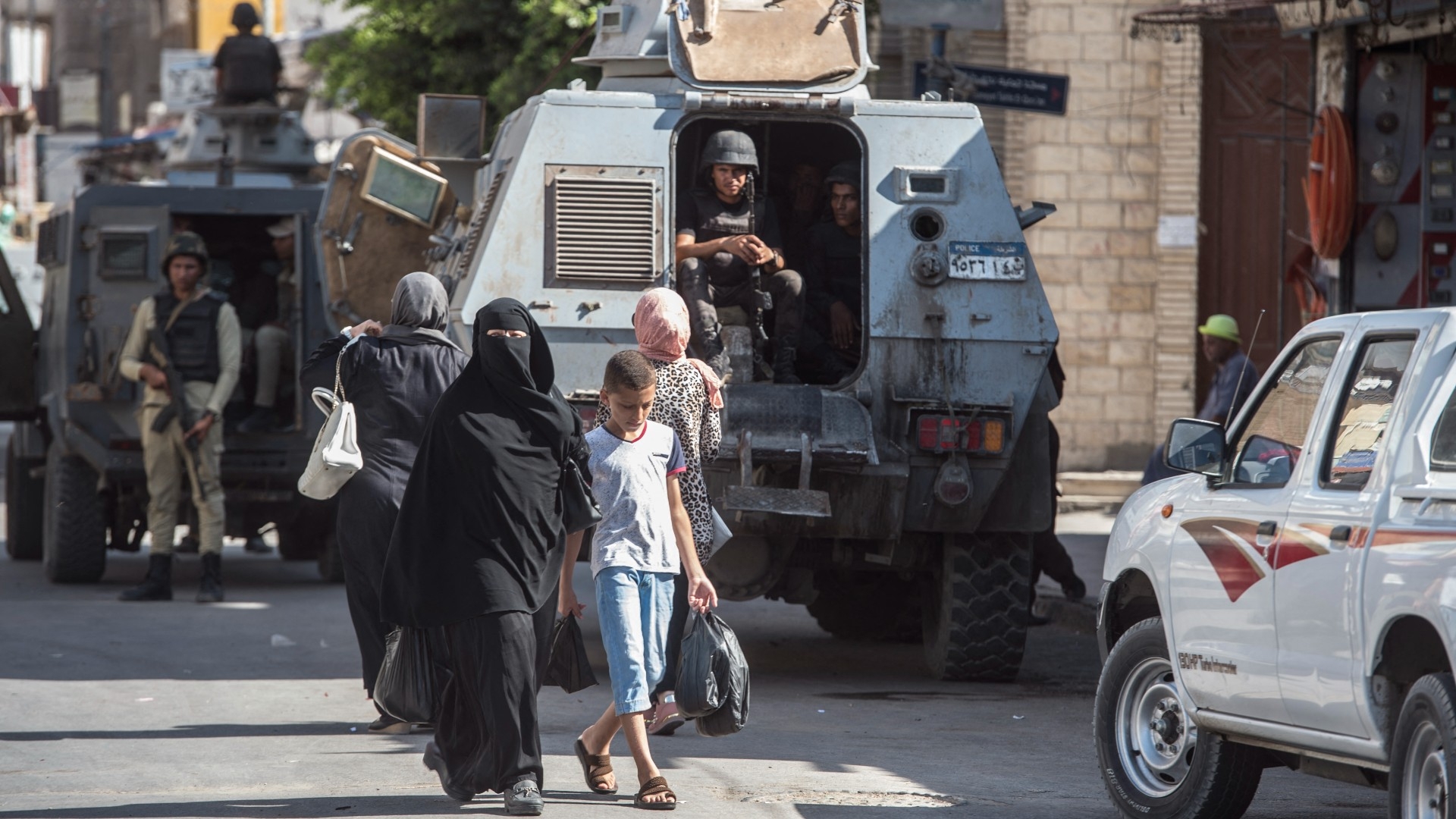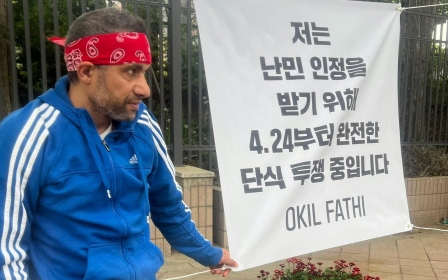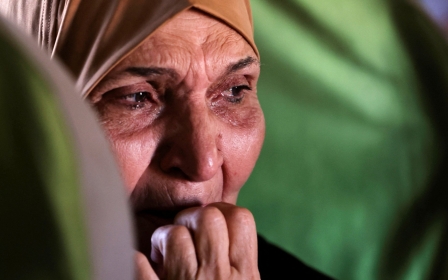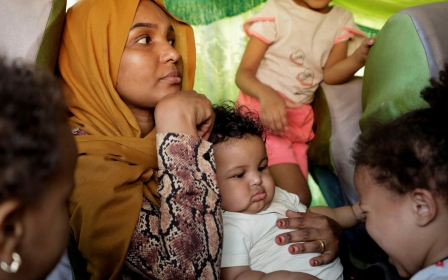Egypt 'detaining and torturing' female relatives of IS militants in North Sinai

Egyptian authorities have arbitrarily detained and tortured women and girls related to suspected militants in the North Sinai region, according to a report published on Wednesday.
Authorities are holding women and girls in incommunicado detention, sometimes for years, partly in an attempt to obtain information on male relatives suspected of links to Sinai Province, the local branch of the Islamic State group.
Many of the women were themselves victims of abuse at the hands of militants, according to the report by Human Rights Watch and the Sinai Foundation for Human Rights (SFHR).
“Egyptian authorities have been abusing many women and children in North Sinai to extract information about their suspected ISIS affiliate relatives or pressure these suspects to turn themselves in,” said Ahmed Salem, executive director of the Sinai Foundation, using a different acronym for IS.
“The authorities should immediately free all women and girls held merely for being related to or associated with male suspects, and investigate torture and other ill-treatment against them.”
New MEE newsletter: Jerusalem Dispatch
Sign up to get the latest insights and analysis on Israel-Palestine, alongside Turkey Unpacked and other MEE newsletters
The rights groups documented cases involving 19 women and two girls between 2017 and 2022, interviewing relatives, lawyers, and current and former female detainees.
Relatives of three detainees said Egyptian authorities beat and used electric shocks on the women, while others were slapped, blindfolded and verbally abused.
Several of the women were abused by Sinai Province militants, including being raped and forced into marriage, sources said. But in all cases reviewed by the rights groups, detainees were not treated as potential victims of crime by Egyptian authorities.
In six cases, security forces detained women and girls who had escaped the IS-affiliated group and sought protection via state authorities. Several of them were charged with joining and providing logistical support to a terrorist group.
'Intolerable abuses'
“Many women and girls in North Sinai have already suffered intolerable abuse at the hands of ISIS-linked members,” said Adam Coogle, deputy Middle East and North Africa director at Human Rights Watch.
“The Egyptian government should be protecting them, not locking them up and torturing them.”
The rights groups called on Egypt's international partners to urge authorities to end security forces' abuses, and on the United Nations to address deteriorating human rights in the country.
'The Egyptian government should be protecting [women and girls], not locking them up and torturing them'
- Adam Coogle, HRW
Egypt declared war on IS following the military coup led by President Abdel Fattah el-Sisi in 2013, when the former army general ousted his democratically elected civilian predecessor, Mohamed Morsi.
Years of military operations in North Sinai between the Egyptian armed forces and the local branch of the Islamic State group have taken a heavy toll on civilians and soldiers.
Human Rights Watch believes that over 100,000 of the region’s 450,000 residents have been displaced or have left the region since 2013.
Death tolls in the conflict are not publicly available, but according to a count compiled by independent researchers who maintain anonymity for their safety, more than 1,500 military personnel were killed between 2011 and June 2018.
Middle East Eye reported last month that the Egyptian army “unnecessarily" destroyed schools in the Sinai Peninsula in its war against militants, forcing a generation of pupils out of school.
This article is available in French on Middle East Eye French edition.
Middle East Eye delivers independent and unrivalled coverage and analysis of the Middle East, North Africa and beyond. To learn more about republishing this content and the associated fees, please fill out this form. More about MEE can be found here.




